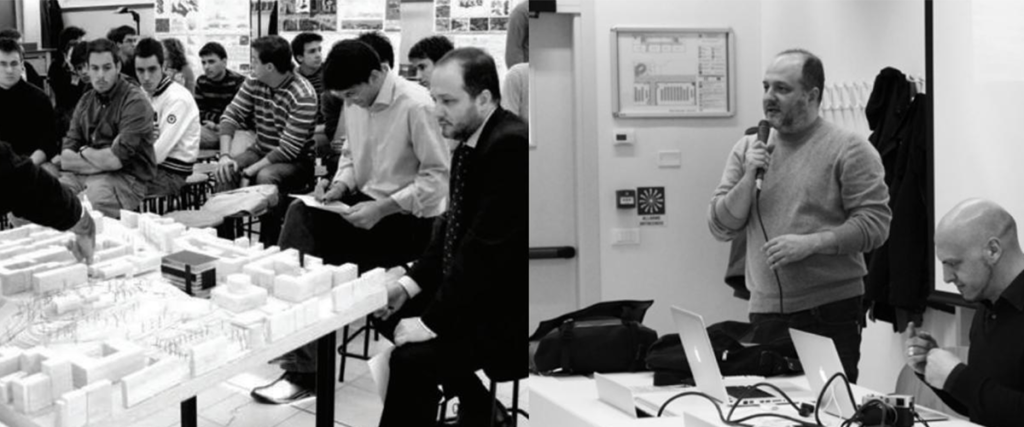What is Proxima City?
PROXIMA CITY is an open conceptual and design platform that aims to substantially evolve the living experience of people in urban contexts.
Proximity and relational density are the key qualitative urban parameters on which PROXIMA CITY intends to define a new idea of the city, and represents the ability of urban architecture to generate relationships, to increase the number and quality of interactions between people, and to encourage new individual and collaborative behaviors, through the design of urban proximity contexts.
Emptiness is more important than fullness. The space between things is more important than the things themselves because it is the space through which things enter into relationship thanks to the physical characteristics of their proximity.
To draw the void is therefore to draw the proximity between things and to determine relationships.
The intimate space and the collaborative space are the two terms that in PROXIMA CITY interact at all scales of urban design, from campus housing to pod housing, through gradualness of relational proximity that modulates the relationships between the individual and the public space.
Public space is that space where individual actions and behaviors matter because they come into a relationship.
PROXIMA CITY aims to redefine on a theoretical and experimental level a different spatial, typological, and managerial configuration of the physical world of the city to make it consistent with current housing and urban behavior.
Designers, sociologists, web designers, managers, and developers are invited to share and contribute with their ideas to the growth and dissemination of this platform which is totally and structurally open since ideas are by their nature contagious while the individual applications of the conceptual platform that each designer develops are and remain the property of their authors.
Any designer can join the scientific community of PROXIMA CITY and be inspired by its conceptual platform, sharing its principles and aims and also contributing to its further evolution.
The goal is to destroy the concept of condominium together with the collective imagination and the deeply deteriorated behaviors related to it, to completely reconfigure the DNA of the urban housing fabric, through the triggering of a contagious process of urban micro-regeneration, allowing a behavioral transition to generate a positive imaginary of living together.
Institutions we have collaborated with
- Istituto di Ricerche Farmacologiche Mario Negri
- Monash University
- Politecnico di Milano
- l’ARCA International
- OCCAM – Observatory of Digital Communications
- Reinventing Cities
- Sharing Cities – Comune di Milano


Joseph Di Pasquale
Founder of JDP Architects studio.
Chief Architect and academic scholar in Architetture Technology.
Urban Designer with international experience and awards.
Personal interest as movie maker, screenplayer, and director.
Founder of Joseph di Pasquale Architects, a group of architects, designers, web masters, artists and engineers based in Milan that operates internationally, committed to continuous mutual exchange between professional practice and research activities. Changes in user behavior and perception methods and perception, the digital revolution and the change in social and relational paradigms connected to it, are the main areas of experimentation in which the firm has involved clients, companies and research in past years academic in a real permanent design anticipation application laboratory.
Graduated magna cum laude in architecture in 1991 and PhD in 2019 at Politecnico di Milano. Professor at Faculty of Architecture and Society at Politecnico di Milano from 2009 to 2015. He started his professional practice in 1992. In 2001 he studied Film Directing in New York Film Academy. His professional practice JDP Architects operates in Europe and China. In 2019 he got a “cum laude” PhD at Politecnico di Milano with the thesis: “Hybrid Modular Architecture: a strategic framework of building innovation for emerging housing behaviors in urban contexts”.
→ Read more on Joseph Di Pasquale
→ Download his PhD thesis

